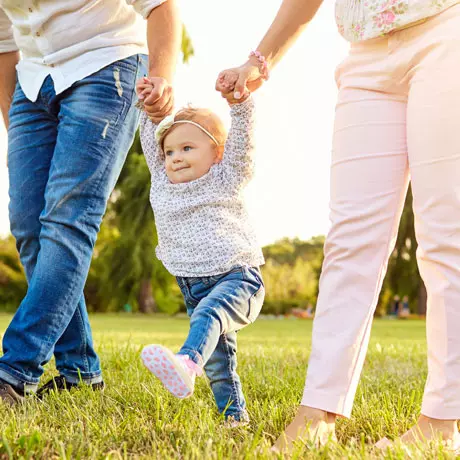Receiving unconditional love from parents or guardians is vital in childhood; however, it can be difficult to show love and empathy when you are upset by something your child has done. The key is mindfulness and a new approach to discipline, known as Conscious Discipline. Here, the child development and education specialists at Celebree Learning Centers provide guidance on how to show unconditional love through difficult times.
Although most parents and guardians would agree that they love their child unconditionally, many children have a difficult time understanding this when the adults closest to them are upset with them. It is in these moments when children may feel unlovable, and as such it is important to manage these heated situations in such a way that children still feel cared for, loved and understood. Here are a few ways to show unconditional love to your children regardless of the situation.
Empathize and Connect with Children When They Exhibit Hurtful Behavior
Children often exhibit hurtful behaviors because they feel that their needs are not being met in some way—acting in a hurtful way can be, for children, a cry for help. Knowing this, it is important to empathize with your child when they are exhibiting hurtful behavior. This can be done through Conscious Discipline, a technique built on mindfulness and respect. Ask your child what they are feeling, and repeat the feeling back to them. Tell them that you can understand why they feel the way they do, and then gently guide them toward a more helpful behavior.
This approach gives children a way to calm down, express themselves in an environment of love and then determine a more helpful behavior to fix the situation. By expressing empathy, you remind children that they are still loved and understood, even when they are not making the most helpful choices.
Manage Your Anger and Frustration
Being a parent is tough, and it is not uncommon for parents to lose patience with their child at some point. While this is inevitable, it is important to try and approach disciplinary situations with a calm and rational demeanor. Your child does not want to hurt you, just as you do not want to hurt your child. If you are feeling extremely upset over something your child did, tell your child that you will talk to them in a minute, and then step away from the situation to calm down. Take several deep breaths, count to ten slowly and then revisit the situation. Remember that your child is not an adult—they haven’t had as much time as you to learn and absorb appropriate behavior, and so they will inevitably make mistakes. End learning moments such as these with a hug or other sign of affection, to remind your child (and yourself) that this is a relationship founded on love and respect, not anger and resentment.
Identify Helpful Behavior and Teach Children to Internally Motivate
Children who feel loved and understood want to please the adults in their lives, but they must also learn to please themselves by exhibiting helpful behavior. A child who has exhibited helpful behaviors—especially if they have struggled with those behaviors in the past—need praise and encouragement, but should also be taught to feel pride in their behavior intrinsically. When a child exhibits behavior you wish for them to repeat, identify the behavior and give praise with feedback. Telling them they should be proud of themselves, instead of telling them that you are proud of them, teaches them to be intrinsically motivated—motivated by themselves—instead of motivated by external praise alone.
Choose a Learning Center That Holds Similar Values to Yours
Children do not live in a bubble, and consequently learn from environments and individuals outside of their familial home. It is important to choose a learning center that exhibits learning and Conscious Discipline techniques that you wish to model for your children. At Celebree Learning Centers, we treat children with compassion, empathy and respect, and our certified educators use Conscious Discipline to help children of every age learn and grow. To learn more about our programs, contact us today to schedule a tour.

